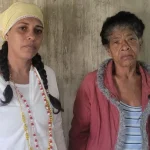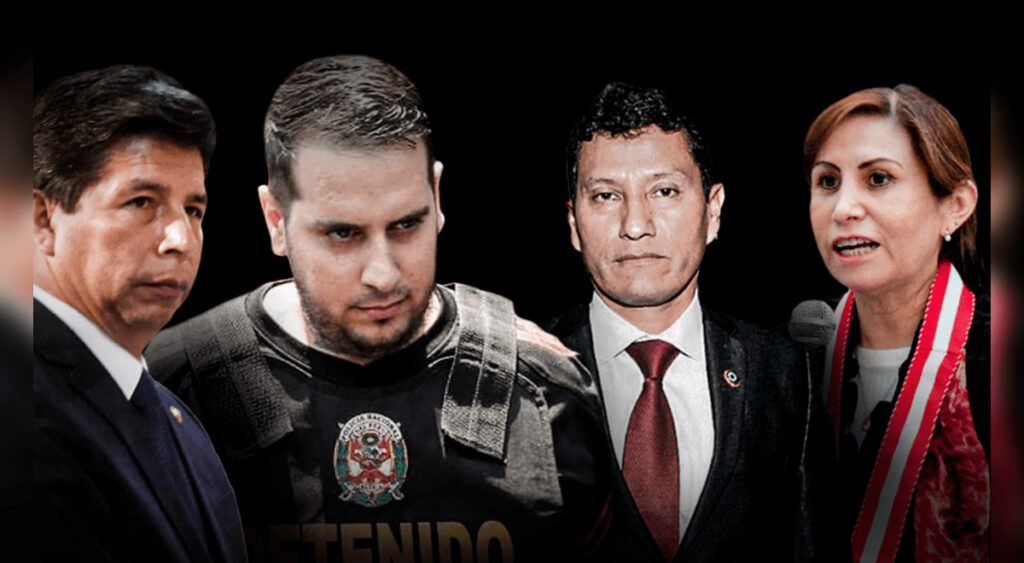“I got out of there. Get out! ”, Family and friends asked“ María ”—the pseudonym chosen by a professional who provided her services in a private sector chamber. She was in her office, starting the week’s activities, when a friend sent her a message informing her that they had just canceled the Superior Council of Private Enterprise (Cosep), and 18 more cameras, urging her to leave the building. as soon as possible, afraid that the police would surround him. Her relatives made the same request.
A few kilometers further south, “Esther” who worked in a chamber in the services sector, recalls that “while I was having my coffee in the office, at very 8:30 in the morning a colleague who was in a medical consultation called me worried, because someone had told him about the closure of Cosep”, so he looked for the news online, and although he found it in two media outlets, “I honestly did not believe it”.
His disbelief collapsed when he asked someone else, and they sent him the link to the Gazettewhere he discovered that In addition to Cosep, they had canceled another 18 chambers —including his work center—, so he immediately reported it to the work group and “nervousness broke out.” Finding out that the directors had an emergency virtual meeting did not help calm things down.
In this way “María” and “Esther”, along with some 300 other people, were thrown into unemployment, without prior notice and without being able to understand why the regime, headed by Daniel Ortega and Rosario Murillo, eliminated the legal status of those 19 entities.
The story of “Juana” differs in form, but it coincides in substance. For personal reasons, she was out of the office when she started receiving messages that she was basically out of a job. She felt so bad, that she left the place where she was, and went to the chamber of the productive sector in which she provided services to find out what was going to happen to her and her colleagues.
The regime’s move is part of a crackdown on civil society, which has already eliminated more than 3264 NGOsincluding the 19 cameras, two universitiesand Caritas Nicaraguaas the most recent victims of the ortega guillotine.
The institutions of the business sector reach 22, if added the Association of Private Banks of Nicaragua (Asoban)he Nicaraguan Development Institute (INDE) —considered the social arm of Cosep— and the Livestock Exhibition of the Central American Isthmus (Expica), which had been canceled in July 2022.
Living from day to day, but “many cried”
Despite the emergency tone with which her friend and her relatives told her to leave the chamber’s headquarters, “María” stayed there for the next few hours, waiting to find out how that would end. For now, she searched in La Gaceta, and upon confirming her news, she prepared to return to her house, but without rushing things.
He took out what little of his property he had in the office, as did his colleagues. They closed the building, and returned to their homes. Although the trauma of suddenly finding himself unemployed hammered at his conscience, he recounts that the move was not entirely unexpected, especially seeing how the dictatorship had stolen the buildings of various media outlets and many NGOs.
“We have always lived from day to day, thinking that it was going to be the last, labor speaking. One day at a time, so we had as little as possible in the offices. seeing how they confiscated you (CONFIDENTIAL)we learned to change the style of doing things, although the pandemic also taught us to live ‘lighter’, because we lived in fear that they would come and steal our personal things”, he shares.
Upon arriving home, he “cleaned” the computer and prepared to hand it over to the administration, and to find out if they are going to pay their bills, but “they haven’t told us anything, and we are in anguish. We ask ourselves what we are going to do, who is going to give us work, coming from a union of the private sector”.
Although only two people depend on their salary, he acknowledges that there are some former employees of the service area who have a greater number of dependents, for which “many cried.”
For now, they are awaiting the efforts of the managers, who asked them to wait “a couple of days” to have answers, at least, about the payment of their settlements.
“They don’t think about how many families are left unprotected”
A few kilometers north of “María’s” office, “Juana’s” co-workers were also immersed in the same anxieties, because they wondered if there was any way to reverse the work misfortune that had befallen them, or if managers would find a way to liquidate the staff, in accordance with the law.
Given her privileged position at the union’s headquarters, “Juana” knows that the bank accounts have “just enough to pay for the operations and the salaries of each month”, but her situation seems to be better than that of “María” and the of “Esther”, because the members of the Board of Directors were very empathetic with them.
“We have been very exposed in the last five years. The managers told us that the staff (we are almost twenty people) is a priority, and that they are going to find a way to liquidate us, but also to try to ensure that we do not end up on the street, relocating us to partner companies, ”he recounts.
Although she does not have minors who depend on her, she stresses that she lives with her parents and contributes to household expenses, which is why the news caused her disappointment at first, and indignation in the rest of the day, when she read comments like! It’s good that they closed Cosep (or its cameras)! Because “those who say that don’t think about how many families are left unprotected,” he reflects.
“Managers are paralyzed by fear”
This Tuesday afternoon, the mood in “Esther’s” office was “funeral”, both for her and for the rest of her colleagues, who do not reach ten. “Basically we are sitting idly by, because they froze the institution’s accounts, leaving us without the payment for the fortnight of March, much less the liquidation.”
“As collaborators, we do not even have the hope that they will liquidate us with assets, since they are in favor of the State,” he details.
Although the chamber leadership has sought alternative responses, at this time they have no reason to believe that they will be paid what they are owed. In principle, because a query was made to the Ministry of the Interior, whose response was that they had nothing to do there, because with the ministerial agreement, the case was transferred to the Attorney General’s Office.
The indication was that the president had to appear “to see the closing procedures and the arguments for the freezing of assets, assets, liabilities, profits, etc. He sees that they talk about ‘closing procedures’, not about indicating if they are going to return things. The other thing is that the directors of the camera are afraid that they will be jailed when they come to ask, ”he explains.
Although the statutes of the chamber —just like those of any similar association— stipulate that in the event of dissolution a liquidation board must be appointed to guarantee the payment of the collaborators, and the destination that will be given to the assets, “we know that this is no longer relevant, besides that the directors are paralyzed by fear”, she expresses resignedly.
Among the options that the staff considered, it was suggested that they seek funds to pay their bills, but the answer was that “it could not, because they fell into illegality”, although their perception is that there was a “lack of will and diligence” when They did not try to withdraw the money from the bank to liquidate the personnel, although all those who have signatures were present at the chamber’s headquarters.
When they tried, “it was already too late,” he says.
Although “Esther” has no one else who is going to go hungry with her when she loses her job, there are household expenses and outstanding debts that she needs to cover, as well as other personal projects that she hopes to get going in the coming months.


















